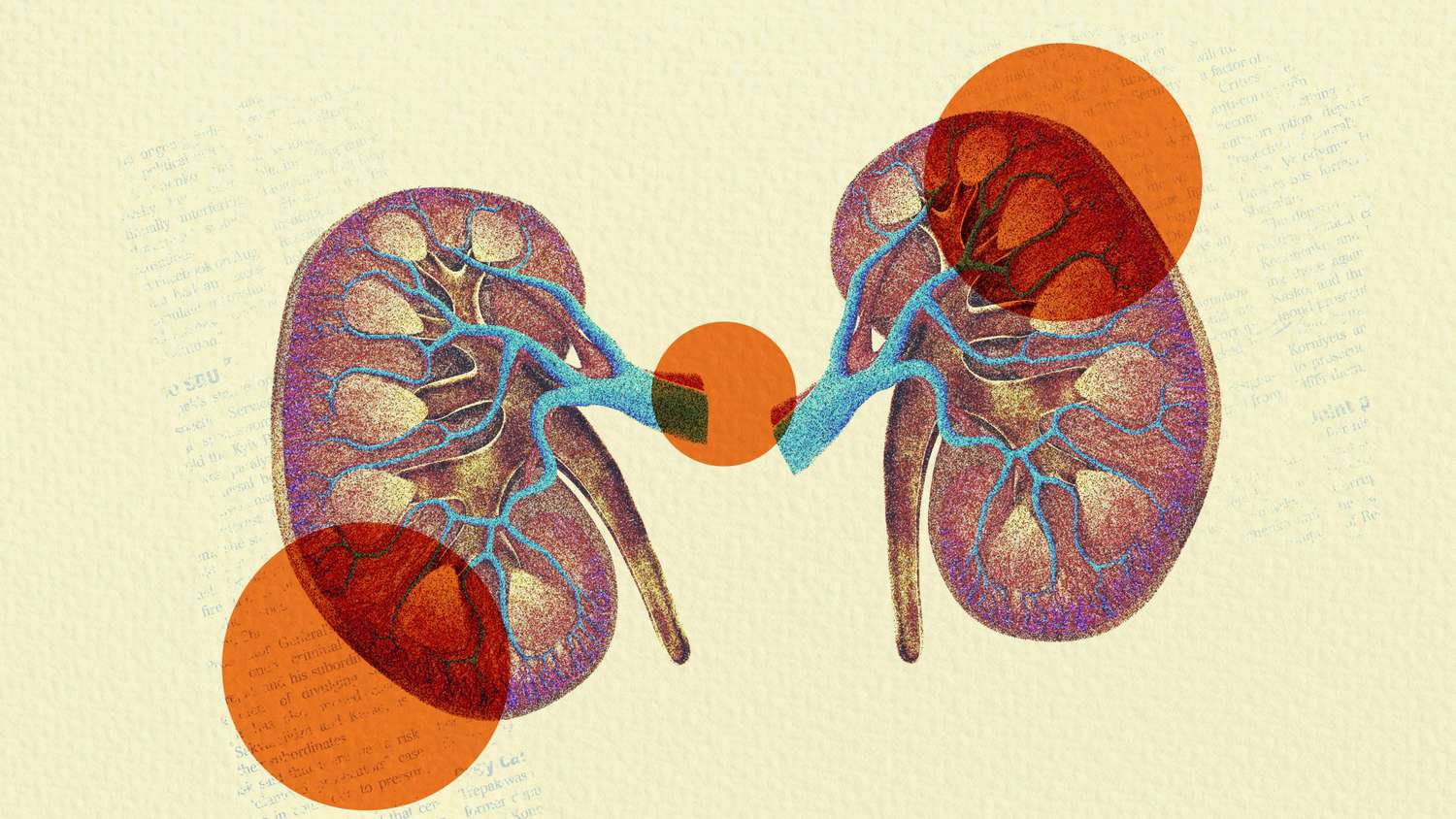
What Does Kidney Failure Feel Like : Unveiling the Signs
Kidney failure may cause fatigue, fluid retention, decreased appetite, nausea, and difficulty concentrating. Kidney failure is a condition that affects the functioning of the kidneys, leading to a wide range of symptoms.
These symptoms can vary from person to person, but common indicators include fatigue, fluid retention, decreased appetite, nausea, and difficulty concentrating. Additionally, individuals experiencing kidney failure may notice changes in their urination patterns, such as decreased urine production or dark-colored urine.
It is important to seek medical attention if you are experiencing any of these symptoms, as kidney failure can have serious complications if left untreated.
Symptoms Of Kidney Failure
Kidney failure can be accompanied by various symptoms, including fatigue, swelling in the legs and ankles, decreased urine output, and difficulty concentrating. Additionally, patients may experience shortness of breath, nausea, and persistent itching.
Kidney failure occurs when the kidneys are no longer able to adequately filter waste and excess fluid from the blood. This can lead to a buildup of toxins and harmful substances in the body. Recognizing the symptoms of kidney failure is crucial for early detection and treatment. Let’s explore the common symptoms and advanced symptoms associated with this condition.
Common Symptoms
When kidney function starts to decline, several common symptoms may manifest. It’s important to pay attention to these signs and consult a healthcare professional for further evaluation if you experience them. The common symptoms of kidney failure may include:
- Decreased urine output
- Swelling in the legs, ankles, or feet (edema)
- Extreme fatigue and weakness
- Persistent itching
- Nausea and vomiting
- Loss of appetite
- Unexplained weight loss or weight gain
- Shortness of breath
- Changes in the color and frequency of urine
- Pain or pressure in the chest area
Advanced Symptoms
As kidney failure progresses, more advanced symptoms may arise. These advanced symptoms indicate a more severe decline in kidney function and should be promptly addressed by a medical professional. The advanced symptoms of kidney failure may include:
- Fluid retention in the lungs (pulmonary edema)
- Blood in urine (hematuria)
- High blood pressure (hypertension)
- Weakness and numbness in the limbs
- Difficulty concentrating and confusion
- Seizures or coma
- Dry and itchy skin
- Dull and brittle hair
- Increased bruising and bleeding
- Severe muscle cramps
If you experience any of these symptoms, it’s crucial to seek medical attention promptly. Kidney failure is a serious condition that requires proper diagnosis and treatment. Remember, early detection can significantly improve outcomes and quality of life for individuals with kidney failure.
Physical Discomfort
Experiencing kidney failure can cause various physical discomforts, ranging from extreme fatigue to muscle cramps and fluid retention. Understanding the physical symptoms of kidney failure is essential for early detection and management. It is crucial to be aware of the signs that could indicate kidney failure and seek medical attention accordingly.
Extreme Fatigue
One of the most common symptoms of kidney failure is extreme fatigue. People may feel constantly exhausted, even after getting enough sleep or rest. This fatigue can impact everyday activities and reduce overall quality of life.
Muscle Cramps
Muscle cramps can be a result of imbalanced electrolytes and mineral levels in the body due to kidney failure. The cramps can occur in various muscle groups, causing discomfort and pain. These cramps may also lead to difficulty in movement and performing regular tasks.
Fluid Retention
Kidney failure can cause the body to retain excess fluids, leading to swelling in the legs, arms, and face. As a result, individuals may experience discomfort and tightness due to the swelling, which can also affect mobility and daily activities.
Changes In Urination
Decreased Urine Output
Less pee coming out than usual can signal kidney issues.
Frequent Urination
Needing to go often may indicate kidney problems.
Blood In Urine
Seeing blood when you pee may be a sign of kidney failure.
:max_bytes(150000):strip_icc()/What-Are-the-Signs-of-Kidney-Disease-GettyImages-623682045-2000-fa8800add9584317ac099dd21191cb38.jpg)
Credit: www.health.com
Digestive Issues
Kidney failure can manifest several symptoms that affect the digestive system. Recognizing these signs is crucial for early intervention and treatment.
Loss Of Appetite
- Kidney failure may lead to decreased hunger and interest in eating.
- Loss of appetite can contribute to malnutrition and overall weakness.
Nausea And Vomiting
- Patients with kidney failure may experience frequent bouts of nausea.
- Vomiting can occur due to the buildup of waste products in the body.
Unexplained Weight Loss
- Weight loss can occur as a result of decreased food intake and nausea.
- Unintentional weight loss is a common indicator of kidney function decline.
Other Symptoms
Kidney failure can cause a range of other symptoms in addition to the commonly known signs like fatigue, swelling, and decreased urination. These symptoms can significantly impact a person’s quality of life and should not be ignored. If you or a loved one are experiencing kidney-related issues, it’s crucial to be aware of these additional symptoms and seek medical advice promptly.
Itching And Dry Skin
Itching and dry skin are common discomforts experienced by individuals with kidney failure. The accumulation of waste products in the blood can lead to these symptoms, causing skin irritation and dryness, which can be quite distressing.
Shortness Of Breath
Shortness of breath is another prevalent symptom of kidney failure. The buildup of fluids in the lungs due to impaired kidney function can make breathing difficult, often leaving the individual feeling breathless and uncomfortable.
High Blood Pressure
High blood pressure is frequently associated with kidney failure. The kidneys play a crucial role in regulating blood pressure, and when they are compromised, it often results in hypertension. High blood pressure can lead to various health complications, further exacerbating the challenges faced by individuals with kidney failure.

Credit: www.eternalhospital.com

Credit: www.pacehospital.com
Frequently Asked Questions On What Does Kidney Failure Feel Like
What Are The First Warning Signs Of Kidney Failure?
Early warning signs of kidney failure include frequent urination, fatigue, swelling in the hands and feet, changes in urine output, and lower back pain.
How Long Can You Survive With Kidney Failure?
Survival with kidney failure depends on treatment. Without dialysis or transplant, survival is limited to weeks or months. However, with proper treatment, many people live for years with chronic kidney disease. Regular medical care and lifestyle changes are crucial for managing kidney failure.
How Does Kidney Failure Make You Feel?
Kidney failure can make you feel tired, nauseous, itchy, and swollen due to buildup of waste in the body.
What Does Stage 1 Kidney Failure Feel Like?
Stage 1 kidney failure may not cause noticeable symptoms, but some people may feel fatigued or experience mild swelling. Regular check-ups are crucial for early detection.
Conclusion
Understanding the symptoms and experience of kidney failure is crucial for early detection. Being aware of signs such as fatigue, swelling, and changes in urine can lead to timely medical intervention. By staying attuned to your body and seeking medical advice, you can better manage kidney health and potentially prevent complications.




